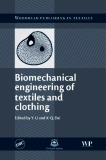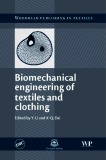Tài liệu Thư viện số
- Cơ khí, Chế tạo máy, Cơ điện tử (648)
- Công nghệ ô tô (227)
- Công nghệ thông tin (1246)
- Kỹ thuật Điện, Tự động hóa (433)
- Điện tử, Viễn thông (423)
- Lịch sử, Địa lý, Du lịch (214)
- Công nghệ Hóa, Môi trường (520)
- Công nghệ May & TKTT (186)
- Kế toán, Kiểm toán (500)
- Quản trị kinh doanh (1135)
- Tài chính - Ngân hàng (53)
- Ngôn ngữ (1926)
- Toán, Lý (374)
- Chính trị, Triết học, Pháp luật (316)
- Thể chất - GDQP (28)
- Văn học, xã hội (483)
- Đồ án, Khóa luận TN (6)
- Luận văn, luận án (3)
- Tài liệu tham khảo khác (825)
Danh mục TaiLieu.VN
- Mẫu Slide Powerpoint
- Luận Văn - Báo Cáo (346704)
- Kinh Doanh Marketing (67778)
- Kinh Tế - Quản Lý (50036)
- Tài Chính - Ngân Hàng (57809)
- Công Nghệ Thông Tin (143292)
- Tiếng Anh - Ngoại Ngữ (47261)
- Kỹ Thuật - Công Nghệ (137309)
- Khoa Học Tự Nhiên (110530)
- Khoa Học Xã Hội (85272)
- Văn Hoá - Nghệ Thuật (54491)
- Y Tế - Sức Khoẻ (177214)
- Nông - Lâm - Ngư (63475)
- Kỹ Năng Mềm (29084)
- Biểu Mẫu - Văn Bản (27862)
- Giải Trí - Thư Giãn (52535)
- Văn Bản Luật (199483)
- Tài Liệu Phổ Thông (409665)
- Trắc Nghiệm Online (213578)
- Trắc Nghiệm MBTI
- Trắc Nghiệm Holland
Biomechanical engineering of textiles and clothing
Introduction: theoretical background; material properties; clothing biomechanical engineering design (CBED) system; applications in product development
Thông tin trích dẫn: Biomechanical engineering of textiles and clothing. Li Y. NXB CRC press, 2006
Vui lòng truy cập địa chỉ sau để download và biết thêm thông tin chi tiết: http://lib.haui.edu.vn/Opac80/Detail.aspx?
id=14322&f=fulltext&v=.+Biomechanical+engineering+of+textiles+and+clothing
Bạn đọc có thể tìm thêm tài liệu tại Thư viện ĐH Công nghiệp Hà Nội tại địa chỉ: http://lib.haui.edu.vn/opac80/
Biomechanical engineering enables wearers to achieve the highest level of comfort, fit and interaction from their clothing as it is designed with the mechanics of the body in mind. This enables products to be developed that are specifically designed for the mechanics of their end purpose (e.g. sports bra) as well as the everyday movement of the body. This is the first book to systematically describe the techniques of biomechanical engineering principles, methods, computer simulation, measurements and applications.
Biomechanical engineering of textiles and clothing addresses issues of designing and producing textiles and clothing for optimum interaction and contact with the body. It covers the fundamental theories, principles and models behind design and engineering for the human body’s biomechanics, contact problems arising between textiles/clothing and the body and the mechanics of fibres, yarns, textiles and clothing.
Material properties are discussed in relation to mechanical performance. It also includes coverage of the Clothing Biomechanical Engineering System developed at The Hong Kong Polytechnic University and its associated models and databases. The book concludes with practical examples of clothing applications to illustrate how to carry out biomechanical engineering design for specific applications.
Thông tin trích dẫn: Biomechanical engineering of textiles and clothing. Li Y. NXB CRC press, 2006
Vui lòng truy cập địa chỉ sau để download và biết thêm thông tin chi tiết: http://lib.haui.edu.vn/Opac80/Detail.aspx?
id=14322&f=fulltext&v=.+Biomechanical+engineering+of+textiles+and+clothing
Bạn đọc có thể tìm thêm tài liệu tại Thư viện ĐH Công nghiệp Hà Nội tại địa chỉ: http://lib.haui.edu.vn/opac80/
Biomechanical engineering enables wearers to achieve the highest level of comfort, fit and interaction from their clothing as it is designed with the mechanics of the body in mind. This enables products to be developed that are specifically designed for the mechanics of their end purpose (e.g. sports bra) as well as the everyday movement of the body. This is the first book to systematically describe the techniques of biomechanical engineering principles, methods, computer simulation, measurements and applications.
Biomechanical engineering of textiles and clothing addresses issues of designing and producing textiles and clothing for optimum interaction and contact with the body. It covers the fundamental theories, principles and models behind design and engineering for the human body’s biomechanics, contact problems arising between textiles/clothing and the body and the mechanics of fibres, yarns, textiles and clothing.
Material properties are discussed in relation to mechanical performance. It also includes coverage of the Clothing Biomechanical Engineering System developed at The Hong Kong Polytechnic University and its associated models and databases. The book concludes with practical examples of clothing applications to illustrate how to carry out biomechanical engineering design for specific applications.
Từ khóa: Biomechanical engineering; textiles; clothing, Công nghệ May & TKTT, Li Y
10 p tailieu_haui 21/06/2022 46 0



